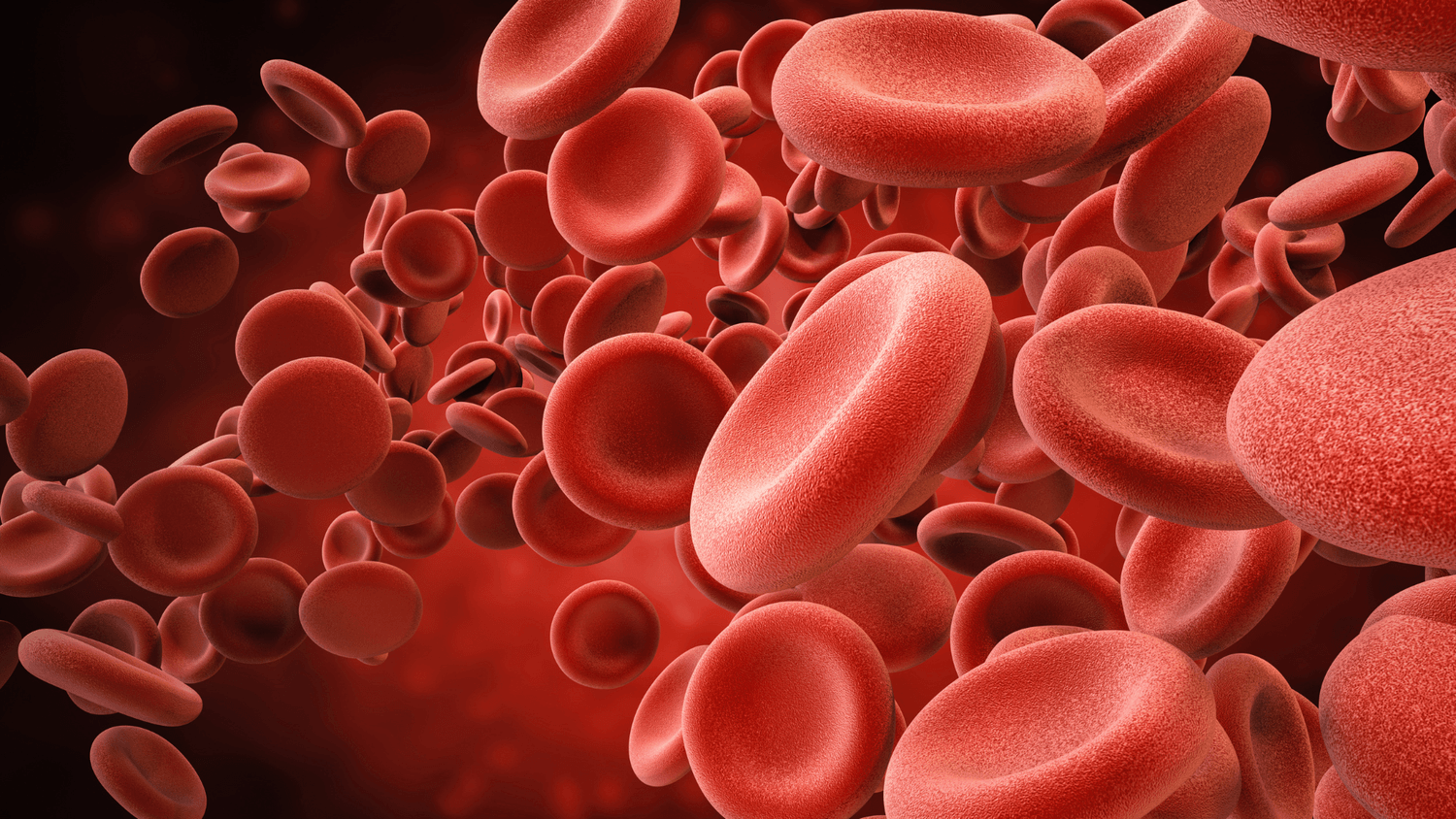Ginkgo Biloba for Memory: Does it Work?
Ginkgo biloba has long been celebrated for its potential to enhance memory and support brain health. With roots in ancient Chinese medicine, this natural supplement remains a popular choice for improving focus, concentration, and mental alertness. Many turn to it as one of the best memory pills available today. But does it really work?
Backed by modern research and centuries of use, ginkgo biloba continues to gain attention as a go-to for boosting cognitive function. Whether you're exploring brain supplements or seeking better concentration, this post will guide you through the benefits and how to choose the right option for your needs.
What is Ginkgo Biloba?
Ginkgo biloba stands out as one of the most ancient and fascinating natural remedies still in use today. Known for its distinct fan-shaped leaves and connection to memory enhancement, this tree and its extracts have long been tied to improved mental clarity and brain health. Let’s break down its rich history and the compounds that make it so powerful.
Origins and Historical Use
Ginkgo biloba is often described as a living fossil. It traces its roots back more than 200 million years, making it one of the oldest tree species on Earth. Native to China, this resilient tree earned a revered place in traditional Chinese medicine, where its seeds and leaves were used for various health treatments. Ancient practitioners believed ginkgo could balance the body, improve blood flow, and sharpen the mind.
It wasn’t just valued in medicine. The ginkgo tree was also planted near temples and homes, symbolizing longevity, strength, and resilience. Fast-forward to today, ginkgo biloba remains a key ingredient in many modern brain supplements. Its reputation for enhancing memory and focus has made it a favorite among those searching for the best ginkgo biloba for memory and mental alertness.
Key Nutrients and Compounds
Ginkgo biloba’s health benefits stem from its rich cocktail of active compounds, particularly flavonoids and terpenoids. These components work together to support brain health and overall well-being.
- Flavonoids: These are potent antioxidants that help protect your cells from damage caused by free radicals. In the brain, flavonoids support better memory and cognitive function.
- Terpenoids: Known for improving blood circulation, terpenoids help deliver oxygen and nutrients to the brain. This can enhance focus, concentration, and even long-term memory.
The synergy between these compounds is why ginkgo biloba is often associated with improved brain health. Many look to ginkgo biloba for brain health due to its ability to boost blood flow and protect the brain from oxidative stress. Whether you’re aiming to stay sharp at work or searching for memory pills, ginkgo biloba’s active ingredients bring real benefits.
With such a powerful mix of natural nutrients, it’s no wonder ginkgo biloba remains a top choice for mental clarity. From improving focus and concentration to supporting long-term brain health, its compounds deliver the goods.
How Ginkgo Biloba Supports Memory
Ginkgo biloba has earned its reputation as a powerful brain booster, often highlighted for its ability to improve memory and cognitive function. The secret lies in how it interacts with the brain’s blood flow, oxidative stress, and neurotransmitters. Let’s explore the science behind ginkgo biloba memory enhancement.
Improved Blood Circulation to the Brain

One of the most significant ways ginkgo biloba benefits memory is by improving blood flow to the brain. The flavonoids and terpenoids in ginkgo act as vasodilators, which means they help widen blood vessels. This allows more oxygen and nutrients to reach brain cells. Think of it like unclogging a hose—when the flow improves, the plants (or in this case, brain cells) thrive.
Better circulation helps the brain work more efficiently, boosting focus, concentration, and memory retention. This is especially crucial for older adults experiencing age-related cognitive decline. By increasing oxygen supply, ginkgo biloba for brain health supports sharper thinking and quicker recall.
If you’re looking for the best ginkgo biloba for memory, focus on supplements that target blood flow regulation, as this is key to maximizing brain performance.
Antioxidant Properties
The brain is highly susceptible to oxidative stress caused by free radicals, which can damage cells and impair memory. Ginkgo biloba stands out for its potent antioxidant properties, thanks to its high flavonoid content. These antioxidants neutralize free radicals, protecting the brain from cellular damage and premature aging.
You can think of antioxidants in ginkgo as tiny shields for your brain cells. By reducing oxidative stress, they help preserve mental clarity and lessen the risk of long-term cognitive issues. It’s no wonder memory pills ginkgo biloba are often praised for their role in maintaining brain health as we age.
Incorporating antioxidants like ginkgo into your routine isn’t just about memory. It supports overall brain wellness, laying a foundation for better focus and mental sharpness.
Neurotransmitter Regulation
Balancing neurotransmitters is vital for maintaining attention, alertness, and memory. Ginkgo biloba has been shown to influence these chemicals, particularly dopamine, serotonin, and norepinephrine. These neurotransmitters act as messengers in the brain, supporting mood, focus, and mental alertness.
Ginkgo helps optimize how these neurotransmitters function, creating a balanced environment for nerve cell communication. If you’ve ever struggled with staying focused during a task, this might be why ginkgo biloba for concentration is such a popular pick among brain supplements.
Regulated neurotransmitters also improve mental endurance, allowing you to focus longer without fatigue. For those searching for ginkgo biloba mental alertness solutions, this is a major benefit.
By improving circulation, defending against oxidative stress, and tuning neurotransmitters, ginkgo biloba proves itself as an effective tool for supporting memory and cognitive health.
Scientific Evidence on Ginkgo Biloba's Effectiveness
When it comes to ginkgo biloba’s effectiveness in improving memory, the scientific community has gathered a mix of promising and conflicting results. Over the years, numerous studies have investigated how this ancient supplement impacts memory and cognitive functions. Below, we’ll explore the highlights of clinical research and discuss the controversies that come with it.
Clinical Studies on Memory Enhancement
A number of clinical studies have assessed how ginkgo biloba impacts memory and mental performance across different age groups. Many of these studies suggest that ginkgo’s active compounds—flavonoids and terpenoids—can improve blood flow to the brain, supporting cognitive function. Here are some key findings:
- Older Adults: Research shows that ginkgo biloba can help older adults experiencing mild memory issues or early signs of cognitive decline. A 2012 study in the “Journal of Psychopharmacology” found that participants who took ginkgo extract saw improvements in recall and attention. This makes ginkgo biloba for brain health a common consideration among those seeking natural support for aging-related memory concerns.
- Middle-Aged Adults: Studies also indicate that ginkgo biloba might benefit middle-aged individuals looking to maintain focus and sharpness as they age. While the improvements are often less dramatic in this group, brain supplements ginkgo biloba may still enhance long-term memory when used consistently.
- Young Adults: Research on younger individuals, such as college students, has revealed mixed results. Some studies suggest that ginkgo biloba focus benefits might occur in high-pressure scenarios, like exams, due to increased blood flow and reduced mental fatigue.
Although studies generally support ginkgo biloba as a helpful supplement for memory, the results vary based on dosage, age, and health conditions. This variability is important to keep in mind when looking for the best ginkgo biloba for memory.
Controversies and Limitations
Ginkgo biloba has sparked plenty of scientific debate, largely because the results from studies can be inconsistent. While many people swear by the benefits of memory pills ginkgo biloba, others point to studies that fail to show significant effects. Let’s break down some of the limitations and controversies surrounding its efficacy:
1. Mixed Research Results: Some well-designed studies, including those on people with Alzheimer's disease, found little to no improvement in memory from ginkgo biloba. Critics argue that positive results may be overstated or linked to placebo effects rather than clear, measurable changes in cognitive performance.
2. Dosage Variations: Not all ginkgo supplements are created equal. You’ll find differences in the concentration and purity of extracts on the market. Studies showing benefits often use specific, high-quality extracts not available in over-the-counter memory pills ginkgo biloba.
3. Health Conditions: Ginkgo’s effectiveness can be diminished if memory problems stem from unrelated health conditions, such as severe dementia or untreated vitamin deficiencies. In these cases, using ginkgo biloba for concentration may not address the root cause.
4. Long-Term Safety: Ginkgo biloba is generally safe when taken as directed, but it can interact with medications or cause side effects like dizziness and nausea in some populations. This raises questions about whether ginkgo biloba mental alertness comes with risks for certain individuals.
Many experts emphasize the need for standardized research to determine who benefits most from ginkgo biloba for brain health. The current body of evidence shows promise, but it’s clear that this supplement isn’t a one-size-fits-all solution.
As scientists continue to explore ginkgo biloba’s abilities, understanding its strengths and limitations remains crucial for anyone considering it as part of their wellness routine.
Choosing the Best Ginkgo Biloba for Memory
Finding the right ginkgo biloba supplement can feel overwhelming with so many options available. Quality, formulation, and proper dosage all play crucial roles in ensuring you maximize its benefits for memory, focus, and overall brain health. Let’s break this down to make your decision easier.

Standardized Extracts vs. Raw Powder
Ginkgo biloba is sold mainly in two forms: standardized extracts and raw powder. Choosing between them is crucial for achieving the desired memory-enhancing effects.
- Standardized Extracts: These are carefully processed to contain specific amounts of ginkgo's active compounds, typically 24% flavonoids and 6% terpenoids. This ensures consistency and potency. Standardized extracts provide reliable results for improving blood flow, brain health, and memory. They’re the preferred option in scientific studies backing ginkgo biloba for memory.
- Raw Powder: Ground ginkgo leaves or raw powder are less common but still available. While more “natural,” the potency varies significantly. Active compound levels can be inconsistent, reducing their effectiveness. This form may be better suited for those wanting minimal processing, but it’s less reliable for enhancing memory or focus.
If your goal is ginkgo biloba memory improvement, stick with standardized extracts. They’re more effective, potent, and backed by research.
Dosage Recommendations
The right dosage ensures you reap the full benefits of brain supplements ginkgo biloba. Taking too little might do nothing, while too much could trigger side effects.
1. General Dosage: Most studies suggest 120 to 240 mg of standardized ginkgo biloba extract daily for improving memory and concentration.
2. Divided Doses: Splitting the dose into two or three servings throughout the day is common to maintain steady effects. For example, 60 – 120 mg twice daily works well for many.
3. Starting Small: If you’re new to ginkgo, begin at the lower end (120 mg/day) and gradually increase. This helps your body adjust.
4. Consistency Matters: Ginkgo biloba often shows results over time. Expect to take it consistently for at least 4–6 weeks to notice improvements.
Always read the label and check with your doctor if you're unsure about your specific needs. The best ginkgo biloba for brain health prioritizes a safe and effective dosage.
Key Features to Look For
Choosing a high-quality supplement is critical for avoiding filler-laden, ineffective products. Here are the key attributes to keep in mind while shopping:
- Purity: Look for supplements that contain only ginkgo biloba extract, without unnecessary additives or fillers. Purity ensures you’re getting the active compounds that enhance ginkgo biloba focus.
- Third-Party Testing: Always choose brands tested by independent labs. This verifies the product's quality and safety. Certificates of analysis (COAs) help confirm the claims on the label.
- No Harmful Additives: Avoid products with artificial colors, preservatives, or binders. Such additives might irritate your system and dilute the effectiveness of memory pills ginkgo biloba.
- Standardized Extracts: Ensure the label specifies 24% flavonoids and 6% terpenoids as these are the active compounds responsible for ginkgo biloba mental alertness.
- Reputable Brands: Stick to well-known manufacturers that are transparent about their sourcing and production methods.
Here’s an easy rule: If a supplement looks too cheap or vague about its ingredients, it’s probably not the best ginkgo biloba for memory. Prioritize trusted products that focus on quality and efficacy.
By understanding these features and choosing carefully, you can enjoy the full benefits of ginkgo biloba for concentration and brain health.
Potential Side Effects and Precautions
As with any supplement, understanding the potential side effects and precautions of ginkgo biloba is critical. While it may offer benefits for mental alertness, memory, and brain health, it’s not the right choice for everyone. Use this guide to stay informed and safe.
Common Side Effects
Ginkgo biloba is generally considered safe, but some users may experience mild side effects. These effects are typically minor and temporary, often caused by the body adjusting to the supplement.
Here are a few common side effects people may notice:
- Headaches: Mild headaches are one of the most reported issues.
- Dizziness: Some individuals experience lightheadedness, especially when starting the supplement.
- Stomach Upset: Nausea or slight digestive discomfort can occur in sensitive individuals.
- Allergic Reactions: Those allergic to plants may notice skin rash or itching.

If you experience any serious or persistent side effects, stop using the supplement and consult with a healthcare professional. Listening to your body is key when trying new supplements for brain health.
Who Should Avoid Ginkgo Biloba
Though ginkgo biloba is widely used, it’s not safe for everyone. Certain groups should take extra precautions or avoid it entirely.
- Pregnant or Breastfeeding Women: Ginkgo has limited studies on its safety for pregnancy, so it’s best to steer clear unless advised by a doctor.
- People on Blood Thinners: If you take anticoagulant or antiplatelet medications (like aspirin or warfarin), ginkgo may increase the risk of bleeding.
- Surgery Patients: Avoid ginkgo biloba at least two weeks before any surgery to reduce bleeding risks.
- Those with Seizure Disorders: Ginkgo may lower the seizure threshold, making it unsuitable for individuals with epilepsy.
- Those with Diabetes: Ginkgo might interfere with blood sugar control, so speak with your doctor first.
It’s always wise to consult with a healthcare provider before starting ginkgo biloba, especially if you fall into these categories or take multiple medications. Safety first!
Other Brain Supplements and How Ginkgo Biloba Compares
While ginkgo biloba is widely recognized for its brain health benefits, it’s not the only supplement in the spotlight. Many people explore other options or even combine supplements to enhance mental clarity and memory. Let's take a deeper look.
Ginkgo Biloba vs. Bacopa Monnieri
Ginkgo biloba and bacopa monnieri both aim to boost brain health, but they work differently. These two are often compared due to their shared ability to improve memory and focus. Here's how they differ:
Mechanism of Action:
- Ginkgo biloba: Enhances blood flow to the brain. This improves oxygen and nutrient delivery, leading to better memory and mental alertness. It also reduces oxidative stress through its antioxidant properties, protecting brain cells from damage.
- Bacopa monnieri: Works by modulating neurotransmitters like serotonin and acetylcholine, which play key roles in memory formation and mood regulation. Bacopa is also known for its adaptogenic properties, helping the body manage stress.
Use Cases:
- If you’re targeting improved circulation and mental sharpness, ginkgo biloba for concentration is your go-to.
- To relieve stress while enhancing long-term memory, bacopa monnieri might be a better pick. This herb is particularly popular among students and professionals managing high-pressure tasks.
Time to Notice Effects:
- Ginkgo biloba: Effects may be felt within a few weeks, especially in terms of mental alertness and focus.
- Bacopa monnieri: Requires consistent use for several months before noticeable memory enhancement occurs.
Both supplements have unique strengths, so choosing between the two depends on your specific needs. For some, combining them in a stack offers a balanced approach to brain health.
Stacking Ginkgo Biloba with Other Supplements
Ginkgo biloba pairs well with certain supplements, creating synergistic effects that can amplify brain health benefits. If you're looking to optimize brain supplements ginkgo biloba for memory and focus, consider these combinations:
1. Bacopa Monnieri
- Why Pair Them? Bacopa supports neurotransmitter balance while ginkgo boosts blood flow. Together, they improve both short-term focus and long-term memory retention.
- Best For: Students preparing for exams or professionals juggling demanding mental tasks.
2. Phosphatidylserine
- Why Pair Them? Phosphatidylserine is a key compound in brain cell membranes. It works with ginkgo biloba to enhance communication between neurons, improving cognitive performance.
- Best For: Older adults dealing with age-related cognitive decline.
3. Lion’s Mane Mushroom
- Why Pair Them? Lion’s mane promotes nerve growth and brain cell regeneration. When used alongside ginkgo, it supports both neural repair and immediate memory enhancement.
- Best For: Those seeking a natural supplement for long-term brain health.
4. Omega-3 Fatty Acids
- Why Pair Them? Omega-3s provide structural support for brain cells, while ginkgo improves circulation. This combo ensures that nutrients and oxygen reach cells more effectively.
- Best For: Overall brain and heart health, particularly in middle-aged adults.
5. Rhodiola Rosea
- Why Pair Them? Rhodiola is an adaptogen that combats stress and fatigue. Combined with ginkgo biloba, it sharpens focus while keeping stress in check.
- Best For: Professionals working under tight deadlines or anyone managing burnout.
When stacking supplements, start with small amounts to assess how your body reacts. Also, consult with your healthcare provider to ensure none of your chosen supplements interact negatively with medications or health conditions.
By combining memory pills ginkgo biloba with complementary supplements, you can create a personalized approach to brain health that fits your unique needs. Whether you’re enhancing focus, reducing stress, or supporting overall mental clarity, ginkgo biloba plays a key role in a well-rounded supplement routine.
Is Ginkgo Biloba Right for You?
Determining if ginkgo biloba is the right supplement for your cognitive health requires reflection and guidance. While this natural extract offers potential benefits for memory, focus, and mental alertness, it's essential to consider your specific goals and consult a trusted healthcare provider. Let’s explore practical steps to assess whether ginkgo biloba aligns with your needs.
Assessing Your Needs
Before deciding on ginkgo biloba, take a moment to identify what you hope to achieve. Are you looking to sharpen your focus at work? Improve memory retention for daily tasks? Or perhaps slow signs of aging affecting your brain health? Pinpointing your goals can help clarify if ginkgo biloba is the right fit.
Here are common areas where people consider ginkgo biloba:
- Boosting Memory: If you struggle with forgetfulness or retaining information, ginkgo may support memory improvements.
- Enhancing Focus and Alertness: For those easily distracted or mentally fatigued, ginkgo biloba focus benefits might help boost concentration.
- Supporting Age-Related Brain Health: Many over 50 choose ginkgo biloba for brain health to address mild cognitive decline.
Take an honest look at your habits too. Do you maintain a balanced diet, manage stress, and get enough sleep? Supplements like ginkgo work best as part of a healthy routine. Remember, while it may not be a "magic solution," ginkgo can complement your efforts to improve mental clarity.

Consulting a Healthcare Professional
Before adding ginkgo biloba to your supplement regimen, it’s wise to consult a healthcare provider. Why? Because while it’s generally considered safe, certain risks and interactions exist. Your doctor can assess how ginkgo fits your medical history and current health.
Here’s when consultation is especially important:
1. Existing Medications: Ginkgo biloba can interact with blood thinners, antidepressants, and seizure medications, potentially causing complications.
2. Chronic Conditions: Those with bleeding disorders, diabetes, or epilepsy need guidance before experimenting with ginkgo biloba for brain health.
3. Surgery Plans: Ginkgo increases the risk of bleeding, so it should be avoided at least two weeks before surgery.
4. Pregnant or Nursing: Safe use during pregnancy or breastfeeding hasn’t been well-studied, making professional advice crucial.
When speaking with a healthcare provider, share specific details about your goals—for example, whether you’re seeking ginkgo biloba memory support or help staying more alert during busy workdays. This ensures clearer recommendations tailored to your needs.
Taking these steps can help you determine if ginkgo biloba aligns with your wellness journey without unnecessary risks.
Conclusion
Ginkgo biloba stands out as a natural aid for memory, focus, and overall brain health. By improving blood flow, reducing oxidative stress, and supporting neurotransmitter balance, it shows real potential as a supplement for cognitive support.
Whether you’re seeking better concentration, sharper recall, or long-term mental clarity, ginkgo biloba offers tools to help. The key is choosing a high-quality product, maintaining consistency, and understanding your unique needs.
If you're ready to strengthen your mental edge, consider exploring the best ginkgo biloba for memory. Always consult a healthcare provider to ensure it fits well with your lifestyle and health goals.





















